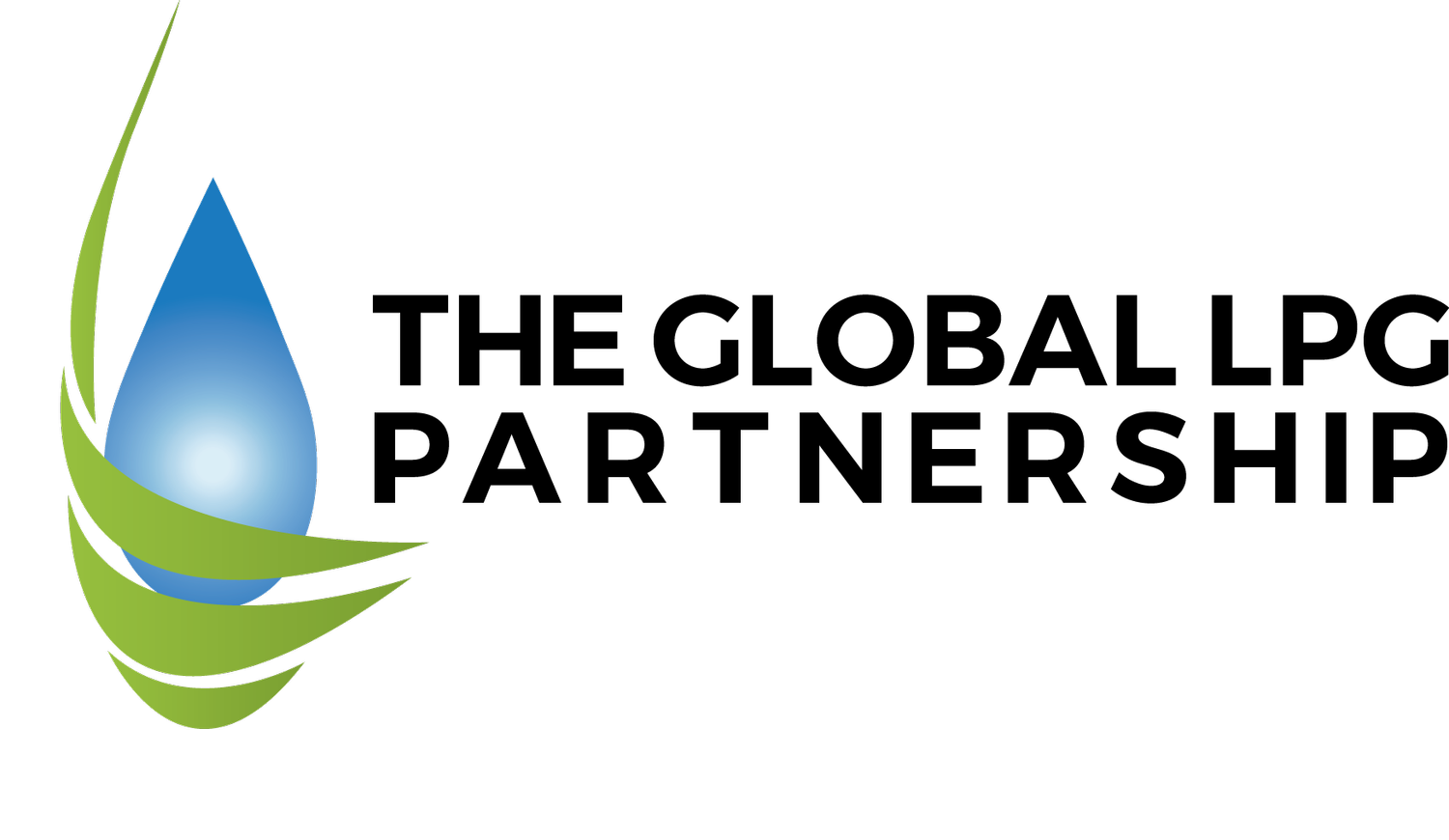Download our 2019 Program Report
Using Liquefied Petroleum Gas (LPG) has become more affordable for lower income families in Cameroon and Kenya thanks to a new microfinance program, called “Bottled Gas For Better Life”, first launched in Southwestern Cameroon in February 2017 by The Global LPG Partnership and later expanded to multiple regions of Cameroon as well as to Kenya.
“Bottled Gas For Better Life” provides lower-income households with loans of about US $85-100 to make the switch from solid cooking fuels to LPG. Loans are provided to households for their purchase of LPG start-up kits. Each kit consists of a double-burner ignition stove, a 12.5kg filled gas bottle, a rubber hose and a regulator. This was the first program of its kind in Cameroon, addressing consumer demand for LPG through microfinance. Through 2019, 707 Cameroonian households (nearly 4000 people) and 69 Kenyan households (around 300 people) have switched to clean cooking with LPG through the program.
GLPGP developed the program to address the challenge of upfront costs that prevent many lower-income families from switching to LPG. Depending on the type of burner that a household uses, the typical cost to buy the required equipment may vary between US$72 – US$88. The cost of a 12.5kg or 13kg cylinder refill, which lasts about a month for a family of five, is around US$10-US$12.
With these loans, families will not have to shoulder the upfront cost of LPG equipment all at once. Repaying the loans will be manageable. Households make equal monthly payments over 6 months.
Local partners are playing integral roles in implementing the program. The Cameroon community lending networks Mutuelle Financière des Femmes Africaines (MUFFA) and MC2 service the loans to the households. MUFFA is supported by Afriland First Bank, a leading Cameroonian bank. Two local LPG marketers, GLOCALGAZ and Tradex, supply the LPG equipment and fuel, and work with GLPGP to organize sensitization and education activities. In Kenya, the microfinance partners are Equity Bank and the Social Economic Mobilisation Agency, and the LPG operating partner is the National Oil Corporation of Kenya (NOCK).
“Bottled Gas For Better Life” builds on GLPGP’s work with the Government and LPG sector in Cameroon. From 2015, GLPGP has been working with the Government of Cameroon under the coordination of the Ministry of Water Resources and Energy (MINEE) to create the country’s first national LPG Master Plan, completed and adopted by the Government in December 2016. The plan defines new policies, regulations and investment projects to support increased LPG supply, availability and affordability, with the goal that 58 % of Cameroonians will use LPG for their cooking needs by 2030. In 2016, less than 20% of households used LPG.
In Kenya, “Bottled Gas For Better Life” complements GLPGP’s ongoing collaboration with NOCK to improve LPG distribution and increase LPG penetration to 70% of the population, with a focus on low-income and rural areas.
In many developing countries, LPG has remained out of reach for much of the population. Besides issues of cost, people in rural areas have inadequate access to nearby LPG suppliers and retails shops where they can purchase refills, like in the cities. However, demand for LPG in Sub-Saharan Africa has spiked in recent years due to more awareness of the benefits of clean cooking. Burning of firewood, charcoal and other biomass fuels for cooking is scientifically proven to be dangerous for health and destructive to the environment. Cooking with LPG eliminates smoke exposure in the home and protects the forest. In addition, using LPG frees up time. Food is cooked faster using LPG, and people (usually women and children) do not need to spend time collecting firewood or other biomass fuels.
“Bottled Gas For Better Life” is also part of an international initiative of GLPGP and other institutions which aims to evaluate what portion of households can be encouraged to switch to LPG for cooking by overcoming the barrier of upfront cost, by making the equipment more affordable and accessible to them. Since 2016, GLPGP has been partnering with the Department of Public Health and Policy at the University of Liverpool, UK. The University is studying enablers to support large scale population shifts from traditional polluting fuels to LPG for clean cooking. This includes testing initiatives designed to help households (especially from poorer, rural communities) make the switch.
Researchers from the University conducted an independent evaluation of the health and livelihood impacts from the "Bottled Gas For Better Life" pilot phase in Cameroon. The pilot phase concluded in November 2017, with encouraging results. 94% of total loaned capital was repaid. Recorded LPG usage per household was nearly five times the national average in Cameroon and consistent with international norms for use of LPG as the primary cooking fuel. GLPGP and its Cameroonian implementing partners expanded the program in 2018 to nine communities across five regions of Cameroon; the expanded program concluded in September 2019 with even better results: a 98% repayment rate and average LPG usage of 21kg/capita/year.
GLPGP is grateful to the OPEC Fund For International Development and the Clif Bar Family Foundation for their support towards "Bottled Gas For Better Life".

